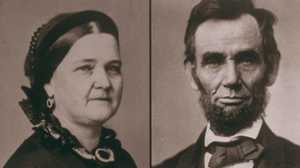Women Writers and Literary Activism
Excerpt from Margaret Fuller Ossoli, Woman in the Nineteenth Century.
Much has been written about woman's keeping within her sphere, which is defined as the domestic sphere. As a little girl she is to learn the lighter family duties, while she acquires that limited acquaintance with the realm of literature and science that will enable her to superintend the instruction of children in their earliest years. It is not generally proposed that she should be sufficiently instructed and developed to understand the pursuits or aims of her future husband; she is not to be a help-meet to him in the way of companionship and counsel, except in the care of his house and children. Her youth is to be passed partly in learning to keep house and the use of the needle, partly in the social circle, where her manners may be formed, ornamental accomplishments perfected and displayed, and the husband found who shall give her the domestic sphere for which she is exclusively to be prepared.
Were the destiny of Woman thus exactly marked out; did she invariably retain the shelter of a parent's or guardian's roof till she married; did marriage give her a sure home and protector; were she never liable to remain a widow, or, if so, sure of finding immediate protection of a brother or new husband, so that she might never be forced to stand alone one moment; and were her mind given for this world only, with no faculties capable of eternal growth and infinite improvement; we would still demand for her a far wider and more generous culture, than is proposed by those who so anxiously define her sphere.
Fuller, S. Margaret. Woman in the Nineteenth Century. New York: Greeley & McElrath, 160 Nassau Street, 1845.
Excerpt from Harriet Beecher Stowe, Uncle Tom's Cabin.
"See here, now, Mr. Wilson," said George, coming up and seating himself determinately down in front of him, "look at me, now. Don't I sit before you, every way, just as much a man as you are? Look at my face, -- look at my hands, -- look at my body," and the young man drew himself up proudly; "why am I not a man, as much as anybody? Well, Mr. Wilson, hear what I can tell you. I had a father -- one of your Kentucky gentlemen -- who didn't think enough of me to keep me from being sold with his dogs and horses, to satisfy the estate, when he died. I saw my mother put up at sheriff's sale, with her seven children. They were sold before her eyes, one by one, all to different masters; and I was the youngest. She came and kneeled down before old Mas'r, and begged him to buy her with me, that she might have at least one child with her; and he kicked her away with his heavy boot. I saw him do it; and the last that I heard was her moans and screams, when I was tied to his horse's neck, to be carried off to his place."
Stowe, Harriet Beecher. Uncle Tom's Cabin. New York: Thomas Y. Cromwell & Co., 1897.
Excerpt from Lydia Maria Child, An Appeal in Favor of That Class of Americans Called Africans.
While we bestow our earnest disapprobation on the system of slavery, let us not flatter ourselves that we are in reality any better than our brethren of the South. Thanks to our soil and climate, and to the early exertions of the excellent Society of Friends, the form of slavery does not exist among us; but the very spirit of the hateful and mischievous thing is here in all its strength. The manner in which we use what power we have, gives us ample reason to be grateful that the nature of our institutions does not intrust us with more. Our prejudice against colored people is even more inveterate than it is at the South. The planter is often attached to his negroes, and lavishes caresses and kind words upon them, as he would on a favorite hound; but our cold-hearted, ignoble prejudice admits of no exception -- no intermission.
The Southerners have long continued habit, apparent interest and dreaded danger, to palliate the wrong they do; but we stand without excuse. They tell us that Northern ships and Northern capital have been engaged in this wicked business; and the reproach is true. Several fortunes in this city have been made by the sale of negro blood. If these criminal transactions are still carried on, they are done in silence and secrecy, because public opinion has made them disgraceful. But if the free States wished to cherish the system of slavery forever, they could not take a more direct course than they now do. Those who are kind and liberal on all other subjects, unite with the selfish and the proud in their unrelenting efforts to keep the colored population in the lowest state of degradation; and the influence they unconsciously exert over children early infuses into their innocent minds the same strong feelings of contempt.
Child, Lydia Maria. An Appeal in Favor of that Class of Americans Called Africans. New York: John S. Taylor, 1836.







